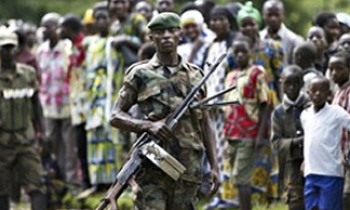A new report has highlighted a worldwide trend of experienced senior staff being replaced by younger graduates who are often employed on a casual or freelance basis and on less pay. The report –The Changing Nature of Work: A Global Survey – polled 41 journalists' organisations in 38 countries that are affiliated to the International Federation of Journalists (IFJ), including the All-India Newspaper Employees Federation (AINEF).

IFJ General Secretary Aidan White, launching the report at the 95th International Labour Organisation Conference in Geneva last week, said that atypical workers – freelancers, casuals, short-term workers on rolling contracts and temporary workers – make up around 30 per cent of the membership of IFJ affiliates and this rising trend was setting new challenges in the battle to maintain high-quality journalism.
"The relationship between journalists and work is particularly important given the relationship between media and democracy," he said. "If journalists' employment is precarious and threatened, it is harder for them to resist pressure to shape stories to satisfy governments or commercial interests, it harder for them to carry out investigative journalism and harder to challenge management's editorial line."
The report, supported by the International Labour Office, documents the trend toward the privatisation of state media and the replacement of experienced senior journalists by younger graduates in non-permanent employment relationships. Younger journalists are also being hired in new areas of employment, including new media and some areas of the developing world where media ownership is expanding. As a result, journalists' average rate of pay appears to have declined in real terms over the past five years. The rate of pay for atypical workers is overwhelmingly set by the employer and is usually a per-story fee.
Insecurity in employment and a lower rate of pay appears to be having a negative impact on the quality of editorial content and may be jeopardising the media's role as a watchdog for society, the report warned.
In particular, insecurity in employment may be contributing to a decline in critical and investigative reporting; changes in media concentration and external pressure are leading to a creeping culture of self-censorship in the news media; and increasing awareness of the costs of running a newspaper or broadcaster – and the importance of advertising – may be guiding editorial decisions; and in the worst cases, poor wages are compromising ethical reporting by increasing the potential for corruption. The key findings are:
- 56.1% of IFJ affiliates reported changes in employment relationships in their country in the last five years. The main trends were a move away from collective bargaining towards deregulated, individual negotiations, the increasing privatisation of state-owned media and employment of younger, less qualified journalists at lower wages.
- 53.6% reported that the average rate of pay for journalists had either decreased or significantly decreased in real terms over the past five years. Only 14.6% reported an increase in real terms.
- 73.2% reported that the rate of pay for atypical journalists was lower than the rate of pay for journalists in standard forms of employment.
- Atypical workers had access to fewer rights and benefits than standard workers. Only 12.2% of freelancers had maternity leave benefits, and 9.8% to sick leave and holiday leave, compared to more than 85% of standard media workers in all three areas.
- Individual contracts or short-term rolling contracts are now an issue for journalists in Australia, Argentine, Pakistan, Peru, Nicaragua and Greece. Precarious employment, unfair dismissals and working without any contract are problems in Mexico and Brazil.
- Belgium, India and Hong Kong all reported that young people were more likely to be employed on rolling contracts or as freelancers.
- 75.6% of IFJ affiliates are worried that editorial content is affected by the nature of the employment relationship, specifically highlighting timid reporting due to insecure employment; a decline in critical, investigative reporting; bland news coverage due to media concentration and government pressure; and pressure on ethical reporting due to low wages.
- Nicaragua, Peru, Australia, Taiwan, Pakistan and Serbia reported pressure to 'tame' controversial stories to satisfy advertisers.

The report stressed that press freedom is vital to the maintenance of a democracy and as a check on government and contains a number of specific examples of how labour relations affect the way journalists are able to carry out their work.
In Hong Kong, for instance, many journalists find it difficult to report objectively about mainland politics because media shareholders/owners have business interests in mainland China. In Hong Kong and India, younger, less experienced journalists under pressure to renew their contracts feel compelled to toe the management's editorial line.
The report also includes a case study of Australian media workers in atypical work based on two surveys (2003 and 2005) after retrenchments and staff freezes at major media organisations has led to an increase in the use of casuals and freelances. The case study shows a resulting rise in health problems, unsatisfactory remuneration for increased workloads and a slump in morale.
IFJ is a non-governmental, non-profit organisation that promotes coordinated international action to defend press freedom and social justice through the development of strong, free and independent trade unions of journalists. IFJ Asia-Pacific coordinates IFJ activities in the Asia-Pacific region. IFJ works closely with the United Nations, particularly UNESCO, the United Nations Human Rights Commission, WIPO and the ILO, the International Committee of the Red Cross, the European Union, the Council for Europe and with a range of international trade union and freedom of expression organisations. The IFJ mandate covers both professional and industrial interests of journalists.









